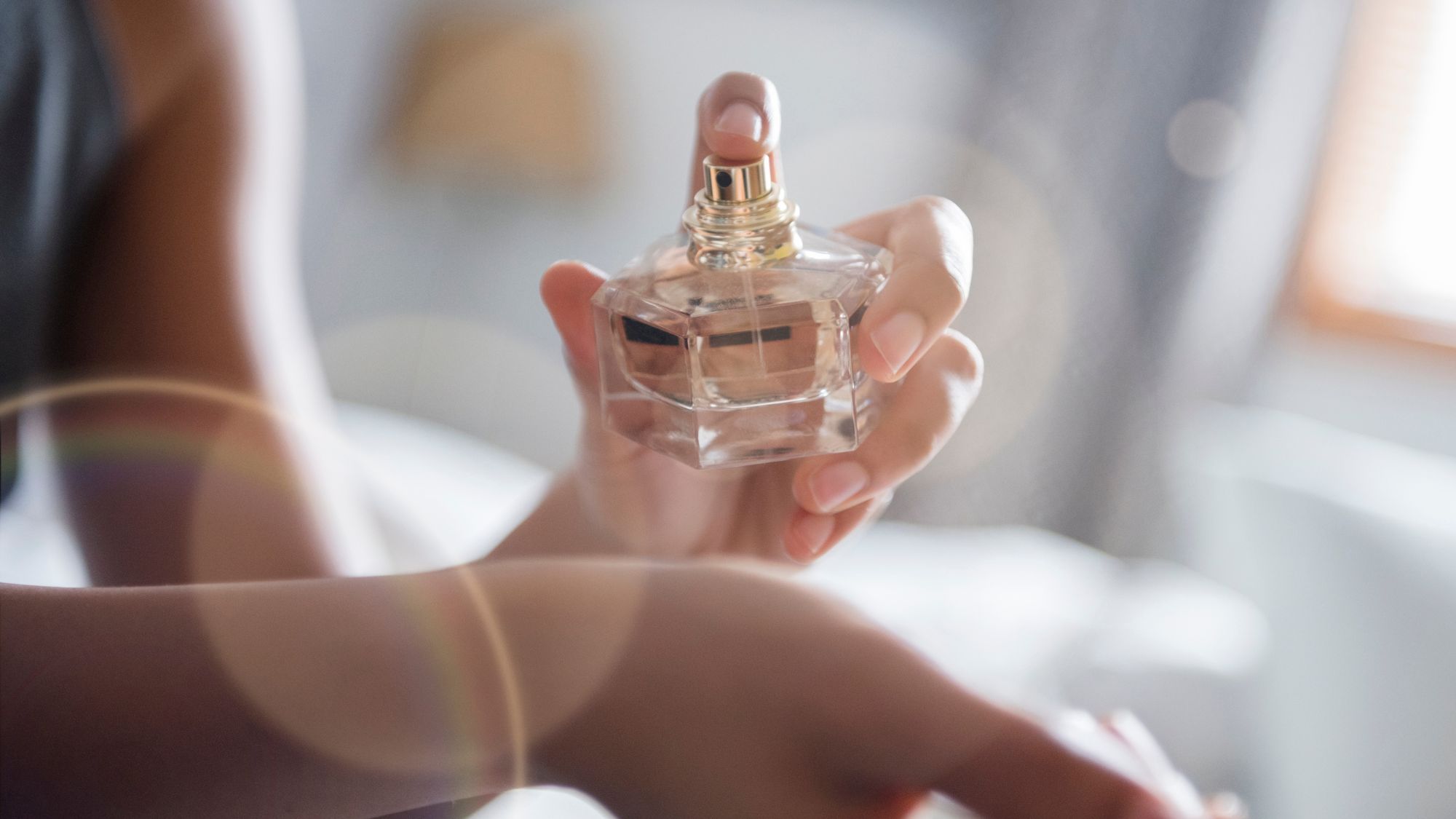This is real difference between eau de toilette and eau de parfum, according to perfumers
Spoiler: a lot of it has to do with marketing

The fragrance world is innovative, vast, and, well, a little bit complex (read: confusing). While part of the beauty of fragrance is its complexities and rich history, sometimes even the most simple terms need debunking. Whether you're shopping for the best perfume ever, a seasonal summer fragrance or even a cult Chanel classic, things can often get confusing.
Truthfully, we just want to know exactly what we’re buying. So, do you know the difference between your eau de toilette and eau de parfum? If not, you’ve come to the right place. We’ve called in the help of two leading perfume experts (who truly know their stuff) to help solve the mystery—and it’s as confusing as it seems.
What is eau de toilette?
Let’s start with the classic eau de toilette, which “comes from the French term ‘toilette’ (a personal grooming ritual to get ready and have a wash), so ‘eau de toilette’ could be translated as ‘water of the washing’” explains Pia Long, Director and Creative Perfumer at Olfiction and founder of Boujee Bougies and Eau de Boujee (told you she knows her stuff). “The original concept of alcohol-based perfume and cologne had a great deal of overlap with bathing, medicine, and even food.”
“Eau de Toilette is concentrated anywhere between 8-15%,” says Nick Gilbert, Director and Evaluator at Olfiction, and founder of Boujee Bougies and Eau de Boujee.
What is eau de parfum?
Interestingly, eau de parfum has less history behind the name. “Eau de Parfum (and for that matter, eau de toilette) are more marketing-related terminology than anything, loosely correlated with the concentration of fragrance oil in the finished product,” says Pia. “Eau de Parfum typically sits between an eau de toilette and parfum extrait [this is sometimes referred to as perfume oil and is somewhere in the 20-40% range] in concentration,” she adds.
Most importantly, when it comes to at-home use, parfum is typically a longer-lasting, more full-bodied expression of the scent than the toilette version, Pia explained to me. Nick explains that eau de parfum is concentrated between 12-20%.
How do eau de toilette and eau de parfum differ?
Believe it or not, there’s no official standard as to how the two terms are differentiated. Therefore, it’s a bit wild west out there and mostly comes down to marketing and a brand’s preference.
Celebrity news, beauty, fashion advice, and fascinating features, delivered straight to your inbox!
Simply put, Pia explains that the two are different ways of presenting a fragrance. “Typically, eau de toilette is less concentrated than eau de parfum, and parfum is the most concentrated of all,” she says. But it isn’t always as straightforward as this because there is “no legal or even industry standard to determine what the concentration level of any of these must be”. Given this, they’re ultimately marketing terms. “I have seen brands call a 15% concentration an eau de parfum and other brands call it an eau de toilette—it comes down to how the fragrance itself feels,” she explains.
Nick echoes this, adding, “Typically, an eau de toilette is formulated to be fresher and lighter, with more head and heart notes in the formulation. Eau de parfum, on the other hand, is formulated to be richer and warmer, with a focus more on heart and base notes.”
Is one more longer-lasting than the other?
We’re going to sound like a broken record here, but again, it really depends. However, as a rule of thumb, Nick explains that eau de parfum is more long lasting than eau de toilette. That being said, longevity depends on the formulation itself. “An eau de toilette built around woody and musky materials may have exceptional longevity, whereas an eau de parfum that is more floral and fruity may not last as long as an eau de toilette built around these slower-to-diffuse materials,” he adds. See? Not super straightforward. “If the solution to the longevity question was always 'just put more in', then perfumer's lives would be much more straightforward!”
What about perfume oils?
"A fragrance oil in perfume-speak usually means the fragrance concentrate (the oil that is the blended expression of a perfume formula, before it’s mixed with water and alcohol),” says Pia.
“Oils and attars [100% scented oil] are typically longer lasting than either eau de toilette or eau de parfum because they are not in an alcohol base, which is naturally more transient and effervescent than an oil,” explains Nick. Oils require more heat and energy to evaporate off the skin so tend to stay put longer. “For the same reason, these longer lasting oils may not be as diffusive as a traditional eau, instead wearing more closely to the skin,” they both explain. “Then again, it depends on the raw materials used in the composition. Oud, for example, is both incredibly powerful and long lasting,” adds Nick.
Which is better value for money?
“Whichever fragrance makes you feel best and you enjoy wearing is the best value for money,” says Nick, and we can't help but respect this answer. Pia echoes this: “They are a different experience, not necessarily interchangeable.”
Since there’s no one rule for which is the most long-wearing, there’s no true way of defining whether one is better value for money. It’s all about what a fragrance does for you.
Tori is a freelance beauty journalist and contributor for Marie Claire. She has written for various titles, including Allure, Glamour, Elle, Refinery29, Brides, and more. Currently training to be a nail tech, Tori is a total nail enthusiast and always has time to talk all things nail art. When she’s not writing about beauty and testing products, Tori can be found walking her rescue dog Pip, drinking great coffee, and eating as many croissants as humanly possible.